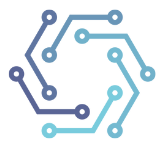A Glimpse into The Future of Python Engineering
In the future of Python engineering, there are lots of potential applications from web development to machine learning algorithms. So it’s no surprise that there’s high demand for skilled professionals who know how to use this language effectively.
As technology continues to evolve at breakneck speed, so too will the capabilities of Python engineering; unlocking new opportunities for those who have mastered its syntax and libraries.
Python is a programming language of the future that has been growing in popularity over the last few years. It’s simple, versatile, and comprehensive, making it an ideal choice for software engineers from all walks of life.
In this blog post, we will understand the future of Python engineering in detail.
What is Python?
Python is one of the most widely used and recognized computer languages, gaining its name from the British comedy group Monty Python. This object-oriented programming language was created by Dutch programmer Guido van Rossum in 1991 to offer a high-level language for utility creation within emerging operating systems.
Not only is Python used frequently by developers, but it’s also become a staple piece in many of the world’s leading tech companies. With easy-to-learn syntax and powerful libraries, it’s no wonder Python has been on the rise in lockstep with emerging technologies like AI and machine learning.
Both of these are critical for introducing innovation into the modern workplace. Therefore, as technologies continue to evolve, learning Python will likely remain at the forefront of engineering development in the future.
What is Python Engineering?
Python Engineering is an emerging field that has application potential for a multitude of computing tasks. It involves the use of the Python language, which is an open-source platform with well-known libraries used to build frameworks that allow for easy manipulation of big data quickly.
Despite its rapidly growing usage in software engineering, many people have yet to fully grasp the concept and harness its power. The future of Python Engineering looks bright, as it helps with:
- automate complex processes
- streamline workflow by speeding up existing tools
- provide clear insights into data analysis and visualization
As technology rapidly advances and changes, the future of Python engineering will also be at the forefront of powering the next wave of innovations.
How Does Python Engineering Work?
Python engineering involves writing code using the language of Python. Becoming proficient in this field requires knowledge of both the syntax and the libraries that come with it. First, you’ll need to learn basic syntax such as if/else statements, variables, functions, classes, objects, modules, etc.
Once you understand the basics of syntax then you can begin learning about the different libraries available. For instance, Pygame or SciPy which provide access to powerful tools for creating applications quickly and easily.
Additionally, mastering some basic data structures such as lists or dictionaries will help you create robust solutions even more effectively.
What are Some Applications of Python Engineering?
Python engineering can be used for a variety of applications including web development (creating dynamic websites), machine learning (teaching computers algorithms), data analysis (making sense of datasets), and much more.
With its wide range of tools and capabilities, it’s no wonder why Python has become one of the most popular programming languages today–it’s incredibly versatile!
Moreover, its easy-to-read syntax makes it perfect for anyone who wants to do python code without having too much experience under their belt.
Upcoming Trends in the Future of Python Engineering
Watch out for the future of python engineering with the help of these upcoming trends. There’s a lot of potential and excitement coming with this year.
A Growing Language
One of the biggest trends driving the future of Python engineering is its growing popularity. In fact, according to Stack Overflow trends 2020 Developer Survey, Python was voted as the top technology used by software developers around the world.
This shows that more and more developers are seeing the advantages of using Python as their primary language for development projects. Therefore, this trend will likely continue as businesses seek new ways to leverage this powerful language.
Data Science & Machine Learning
Another major area where Python is making waves is in data science and machine learning. Thanks to its clean syntax and readability, it has become a go-to language among data scientists due to its ability to quickly process large datasets efficiently.
Additionally, libraries like TensorFlow have made creating neural networks easier than ever before — opening up a host of new possibilities when it comes to artificial intelligence (AI) applications.
We can expect these technologies to grow in the future of python engineering even further in the coming years. Thanks in large part to Python engineers leading the way with cutting-edge solutions.
IoT Platforms
Finally, another big area where we may see Python engineers making an impact is in the Internet of Things (IoT) platforms. One example is the Pycom IoT platform which provides developers with an easy-to-use interface for connecting devices together.
This opens up huge opportunities for creating interconnected systems in the future of Python engineering. It would help with everything from home automation systems to healthcare monitoring applications.
In addition, as more companies move towards connected systems, having a team of experienced Python engineers will be essential for success.
Predictions for the Future of Python Engineering
Python engineering is one of the most powerful and in-demand skills on the market today. With its versatility, scalability, and speed, it’s no wonder that businesses across every sector are turning to this language to develop applications, websites, and more.
Python Demand Will Rise
In the future of Python engineering, the demand for developers will only rise as businesses realize the potential of this powerful language. Python is incredibly versatile and can be used to develop:
- business software
- data science projects
- web applications
- mobile apps
- machine learning algorithms, and more
This means that companies are increasingly relying on Python engineers to tackle complex tasks that require strong coding skills. As a result, the job market for experienced Python developers is expected to keep growing in the coming years.
Python Will Become More Advanced
As technology advances and new breakthroughs exist in the future of programming languages like Python, its capabilities will become even more impressive.
This means that we can expect to see new features of python added over time:
- Things as improved compatibility with other languages and platforms,
- better support for distributed computing environments (like cloud computing), and
- advanced data analysis capabilities
We can also expect to see more tools released that make it easier for developers to build applications quickly and efficiently using Python.
Data Science Will Lead The Way
One area where we can expect to see significant growth in the field of Python engineering is data science. Data science involves collecting large amounts of data and analyzing them with sophisticated algorithms. Something which requires a great deal of computing power.
Python has robust libraries and easy-to-understand syntax. This makes it possible for developers to rapidly create custom data science solutions without having to learn too much about coding first. As such, many companies are now turning towards experienced Python engineers when they need help with complicated data science projects.
Conclusion:
The future looks bright for those who specialize in Python engineering! The popularity of Python is increasing among developers and its potential applications in data science and IoT platforms. There’s no doubt that this language will continue to play a major role in software development well into the future.
So if you’re looking for an exciting job opportunity or just want to learn something new – now might be the perfect time to get into python engineering!










